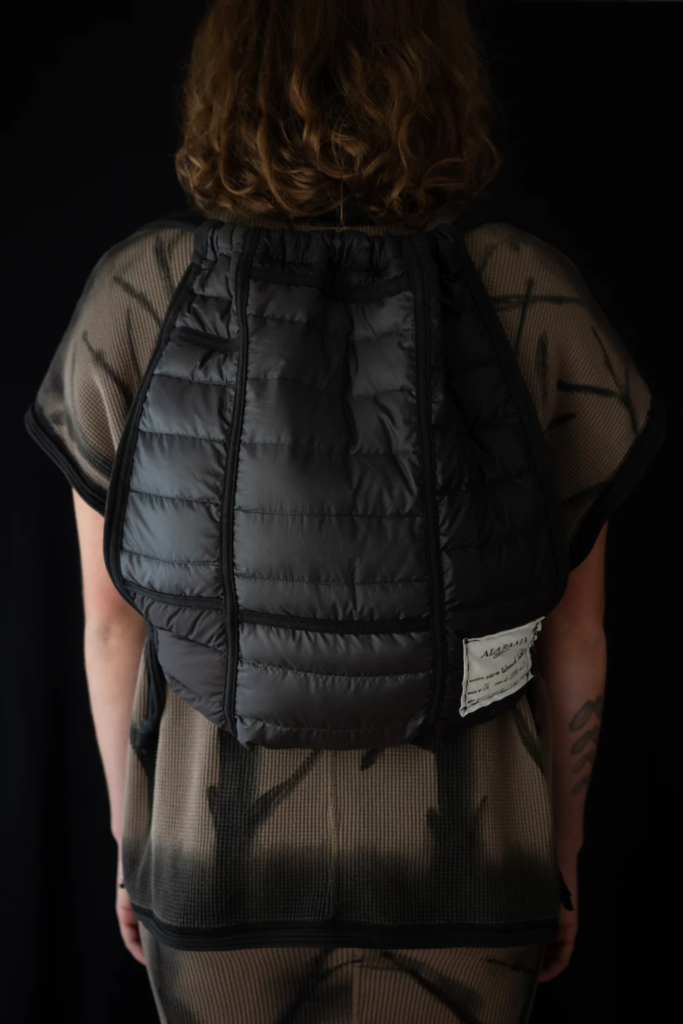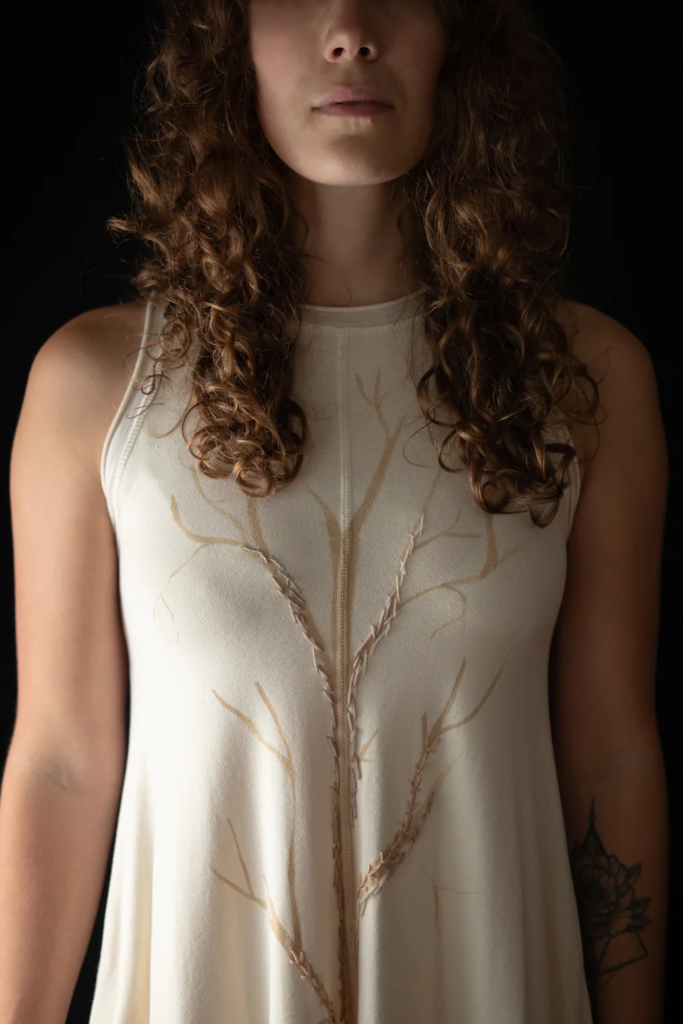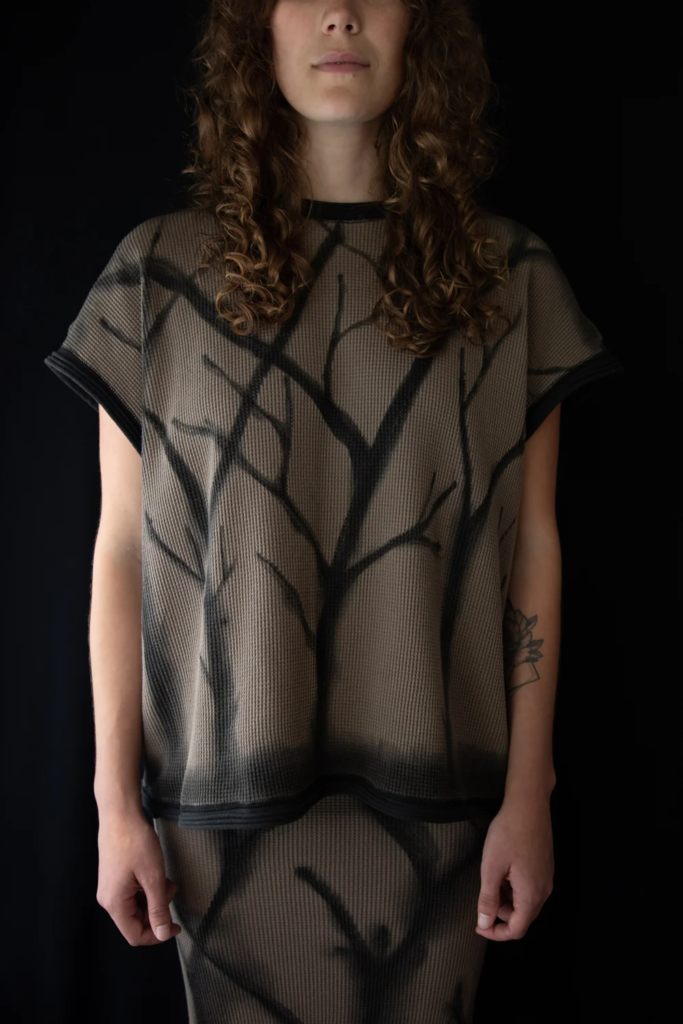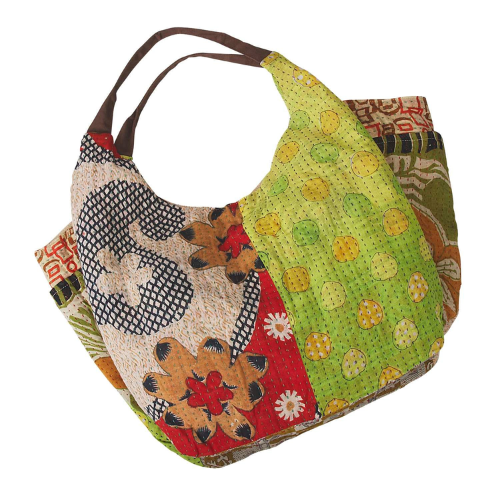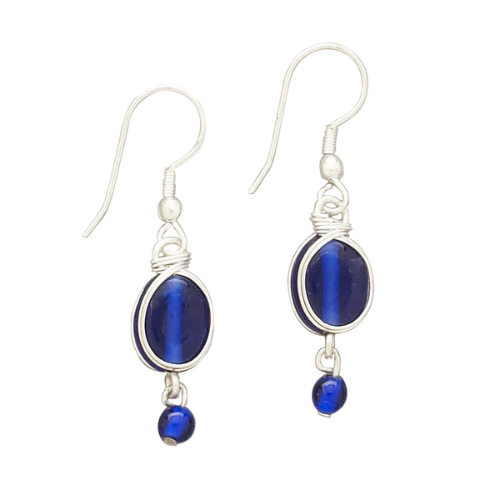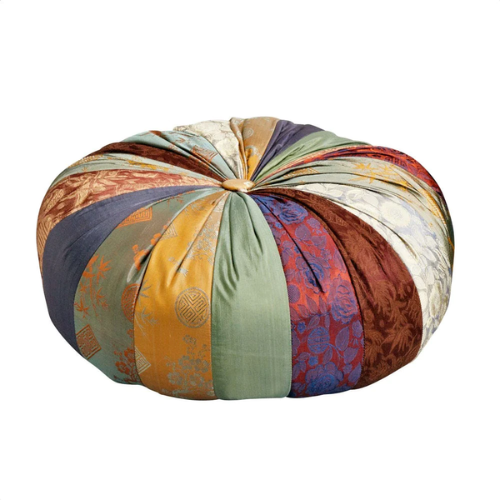Just last week, the fashion world was astir with the groundbreaking news of Natalie Chanin’s decision to convert her renowned luxury fashion brand, Alabama Chanin, into a non-profit organization. This remarkable move challenges the profit-driven norms of the fashion industry, notorious for prioritizing high profits at the expense of social and environmental responsibility.
In an industry where brands often emphasize inexpensive materials, mass production, rapid turnover, and, at times, worker exploitation, the pursuit of profit frequently outweighs sustainability considerations. This approach results in significant harm to both people and the environment.
The growing awareness of the fashion industry’s impact on society and the environment has prompted positive change. Many brands now commit to sustainable practices, altering their production methods, and opting for eco-friendly materials with a lower environmental footprint.
However, even brands dedicated to sustainability usually aim to make a profit. This is what makes Alabama Chanin’s transformation into a non-profit truly unique.
Let’s take a closer look at Alabama Chanin.
Alabama Chanin
Two decades ago, when Natalie Chanin was still working as a stylist, she made a memorable appearance at New York Fashion Week by donning an upcycled old t-shirt. This unique fashion choice received an outpouring of compliments and inspired her to create more of these innovative designs. She decided to sell them during New York Fashion Week, but when she couldn’t find a suitable workshop in New York to bring her vision to life, she turned to her home state of Alabama, renowned for its sewing and quilting traditions.
Her first collection caught the attention of Barney’s fashion director, Julie Gilhart, propelling her brand, Alabama Chanin, into the fashion spotlight. Since then, Alabama Chanin has gained recognition for its slow fashion approach, sustainable design, local manufacturing, and emphasis on craftsmanship. The brand sources organic cotton from various states and employs local artisans for intricate hand-stitching.
In addition to her fashion brand, Natalie Chanin also founded The School of Making, an educational initiative dedicated to preserving craft skills. The School of Making hosts workshops, conversations, and creative experiences, allowing students to explore creativity, craft, and design. Much like Alabama Chanin, The School Of Making uses 100% organic cotton in its practices.
But Natalie’s commitment doesn’t stop there. She has also created the non-profit organization, Project Threadways. This organization documents, studies, and interprets the history of fashion and textiles, with a focus on understanding the impact of textiles on the world.
Why non-profit?
Now, the question arises: Why a non-profit organization in an industry primarily driven by profit? The answer is straightforward: Natalie couldn’t find a suitable successor for her fashion brand. She had concerns that a new owner might prioritize profit over the community of artisans and makers she had painstakingly built.
After exploring various solutions, Natalie Chanin concluded that converting her business into a non-profit organization would best protect the brand’s mission and values. This approach solidifies the brand’s commitment to cultural heritage and crafts and ensures that the non-profit receives funding for vital research.
Want to know more about Alabama Chanin? Please visit their website or take a look at the Instagram (@alabamachanin).
The School of Making (@theschoolofmaking)
Project Threadways (@projectthreadways)
A Similar Occurrence: Patagonia
Remarkably, this is not the first instance of a substantial transformation in the fashion industry. Just last September, the founder of Patagonia, Yvon Chouinard, created headlines by donating the company to combat the pressing climate crisis. In a powerful statement, he proclaimed, “The Earth is now the only shareholder.” Patagonia has subsequently allocated 100% of nonvoting stock to the Holdfast Collective, a non-profit organization devoted to environmental advocacy, while the voting stock has been entrusted to the Patagonia Purpose Trust, established explicitly to safeguard the company’s core values.
Similar to the transformation of Alabama Chanin, this doesn’t entail a fundamental shift in Patagonia’s business operations; the company still maintains a profit-oriented approach. However, the fundamental distinction lies in the destination of these profits. In the future, all profits will be funneled into the non-profit organization, the Holdfast Collective, which is fully committed to the battle against climate change.
Please visit the Patagonia website or take a look at their Instagram (@patagonia).
Are There Other Non-profit Brands?
Following the revelations about brands like Alabama Chanin and Patagonia, I was inspired to search for other fashion brands with similar ethical and fair trade values.
Lorem ipsum dolor sit amet, consectetur adipiscing elit. Ut elit tellus, luctus nec ullamcorper mattis, pulvinar dapibus leo.
Ten Thousand Villages
Seventy-five years ago, Edna Ruth Byler embarked on a journey that ultimately led to the establishment of Ten Thousand Villages. During a visit to Puerto Rico with her husband, Edna encountered women living in dire poverty, struggling to provide for their families. She was deeply moved by the exquisite items these women crafted and made it her mission to bring their creations back home to sell to friends and family. What began as a modest idea has since grown into a substantial organization that supports over 20,000 artisans in developing countries.
Ten Thousand Villages places ethical and fair trade practices at the core of its mission, prioritizing the well-being of artisans and their communities. The brand is dedicated to empowering these skilled craftsmen and women, providing them with opportunities to showcase their talents on a global platform.
Their extensive range of fashion and lifestyle products, which includes clothing, accessories, and home decor, reflects meticulous attention to detail and cultural authenticity. When consumers purchase these products, they not only gain access to beautifully handcrafted items but also contribute to a fair and sustainable income for the artisans. Ten Thousand Villages stands as a pioneer in the fair trade movement, emphasizing transparency and fair trade principles.
For more information, please visit the Ten Thousand Villages website or look at their Instagram (@tenthousandvillages).
Sources
All pictures contain a link to their source, and all credits go to the rightful owners.
You can find the source for the header pictures here.


